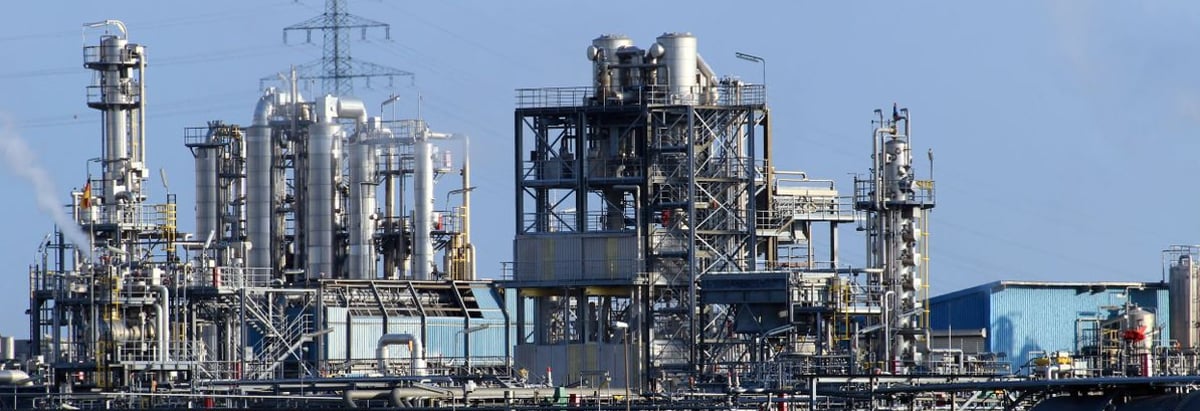Stock Analysis
- South Korea
- /
- Oil and Gas
- /
- KOSDAQ:A024060
We Think Hung -Gu Oil (KOSDAQ:024060) Has A Fair Chunk Of Debt

The external fund manager backed by Berkshire Hathaway's Charlie Munger, Li Lu, makes no bones about it when he says 'The biggest investment risk is not the volatility of prices, but whether you will suffer a permanent loss of capital.' When we think about how risky a company is, we always like to look at its use of debt, since debt overload can lead to ruin. We can see that Hung -Gu Oil Ltd (KOSDAQ:024060) does use debt in its business. But the real question is whether this debt is making the company risky.
What Risk Does Debt Bring?
Debt assists a business until the business has trouble paying it off, either with new capital or with free cash flow. Part and parcel of capitalism is the process of 'creative destruction' where failed businesses are mercilessly liquidated by their bankers. However, a more common (but still painful) scenario is that it has to raise new equity capital at a low price, thus permanently diluting shareholders. Of course, the upside of debt is that it often represents cheap capital, especially when it replaces dilution in a company with the ability to reinvest at high rates of return. The first thing to do when considering how much debt a business uses is to look at its cash and debt together.
View our latest analysis for Hung -Gu Oil
How Much Debt Does Hung -Gu Oil Carry?
You can click the graphic below for the historical numbers, but it shows that as of March 2024 Hung -Gu Oil had ₩8.50b of debt, an increase on ₩8.00b, over one year. However, it does have ₩704.2m in cash offsetting this, leading to net debt of about ₩7.80b.
A Look At Hung -Gu Oil's Liabilities
We can see from the most recent balance sheet that Hung -Gu Oil had liabilities of ₩4.49b falling due within a year, and liabilities of ₩9.10b due beyond that. Offsetting this, it had ₩704.2m in cash and ₩3.36b in receivables that were due within 12 months. So its liabilities outweigh the sum of its cash and (near-term) receivables by ₩9.52b.
Given Hung -Gu Oil has a market capitalization of ₩253.0b, it's hard to believe these liabilities pose much threat. However, we do think it is worth keeping an eye on its balance sheet strength, as it may change over time. There's no doubt that we learn most about debt from the balance sheet. But it is Hung -Gu Oil's earnings that will influence how the balance sheet holds up in the future. So if you're keen to discover more about its earnings, it might be worth checking out this graph of its long term earnings trend.
Over 12 months, Hung -Gu Oil made a loss at the EBIT level, and saw its revenue drop to ₩128b, which is a fall of 11%. That's not what we would hope to see.
Caveat Emptor
Not only did Hung -Gu Oil's revenue slip over the last twelve months, but it also produced negative earnings before interest and tax (EBIT). Indeed, it lost ₩227m at the EBIT level. When we look at that and recall the liabilities on its balance sheet, relative to cash, it seems unwise to us for the company to have any debt. Quite frankly we think the balance sheet is far from match-fit, although it could be improved with time. Surprisingly, we note that it actually reported positive free cash flow of ₩746m and a profit of ₩830m. So one might argue that there's still a chance it can get things on the right track. When analysing debt levels, the balance sheet is the obvious place to start. However, not all investment risk resides within the balance sheet - far from it. For example Hung -Gu Oil has 3 warning signs (and 2 which are significant) we think you should know about.
Of course, if you're the type of investor who prefers buying stocks without the burden of debt, then don't hesitate to discover our exclusive list of net cash growth stocks, today.
Valuation is complex, but we're here to simplify it.
Discover if Hung -Gu Oil might be undervalued or overvalued with our detailed analysis, featuring fair value estimates, potential risks, dividends, insider trades, and its financial condition.
Access Free AnalysisHave feedback on this article? Concerned about the content? Get in touch with us directly. Alternatively, email editorial-team (at) simplywallst.com.
This article by Simply Wall St is general in nature. We provide commentary based on historical data and analyst forecasts only using an unbiased methodology and our articles are not intended to be financial advice. It does not constitute a recommendation to buy or sell any stock, and does not take account of your objectives, or your financial situation. We aim to bring you long-term focused analysis driven by fundamental data. Note that our analysis may not factor in the latest price-sensitive company announcements or qualitative material. Simply Wall St has no position in any stocks mentioned.
Have feedback on this article? Concerned about the content? Get in touch with us directly. Alternatively, email editorial-team@simplywallst.com
About KOSDAQ:A024060
Hung -Gu Oil
Hung -Gu Oil Ltd wholesales and retails petroleum products in South Korea.


